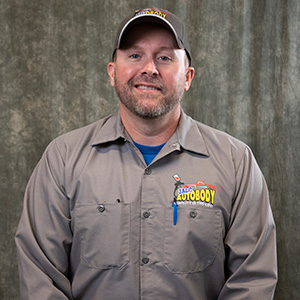Transportation, Distribution, and Logistics Programs
- Auto Collision Technology – AAS Degree
- Auto Collision Technology – Basic Certificate
- Auto Collision Technology – Master Certificate
- Automotive Services Technology – AAS Degree
- Automotive Services Technology – Basic Certificate
- Automotive Services Technology – Hybrid/EV Certificate
- Automotive Services Technology – Master Certificate
Auto Collision Technology Basic Certificate
Certificate
Principles of design and operation provide for an exact appreciation of the functions of automotive units. Coordinated laboratory work develops the ability to execute diagnostic tests and complete the repairs that are indicated. The curriculum prepares students for employment as an entry level auto body painter, collision technician, painter’s helper, detailer, body shop receptionist, and entry-level auto body metal fabricator.
What You Can Do
The Automotive Collision Technology Basic Certificate program will provide you with fundamentals you will need to enter a career in the auto collision industry. Using ICAR curriculum, you will learn many of the latest procedures for repairing late-model vehicles, while also picking up many techniques for performing restoration and custom repairs in this hands-on program. Through classroom instruction and hands-on training, you will learn foundational knowledge in the collision repair industry; basic structural damage repair; analyze damage on vehicles post-accident and how to return vehicles to pre-accident condition.
Jobs
- Body Technician Apprentice
- Fram Technician Apprentice
- Automotive Painter Apprentice
- Detailer
- Wrap/PPF/Tint Installer
- Restoration Apprentice
- Airplane Painter Apprentice
- Product Representative
- Industrial Painter
- Boat Repairer/Painter Apprentice
- Prepper
- Disassembly/Assembly Technician
- Insurance Adjuster
Earning Potential
Bureau of Labor Statistics, U.S. Department of Labor, Occupational Outlook Handbook, Automotive Body and Glass Repairers, at https://www.bls.gov/ooh/installation-maintenance-and-repair/automotive-body-and-glass-repairers.htm
Modes of Instruction
Learn more about the modes of instruction offered at John A. Logan College.
Program Details
ACT 2022
Automotive Faculty Contact
Jason McFarland
Associate Professor – Auto Collision Technology
Associate Professor – Automotive Service Technology

Email: jason.mcfarland@jalc.edu
Phone: (618) 985-2828 Ext. 8375
Office: V30A